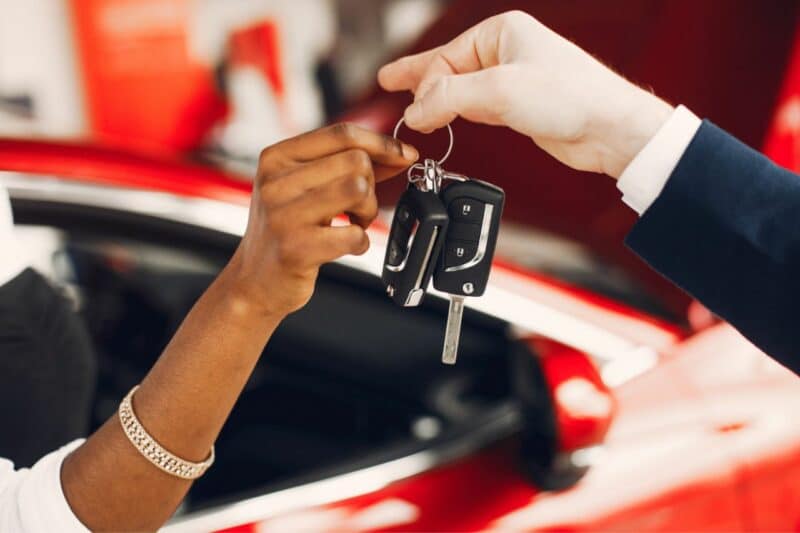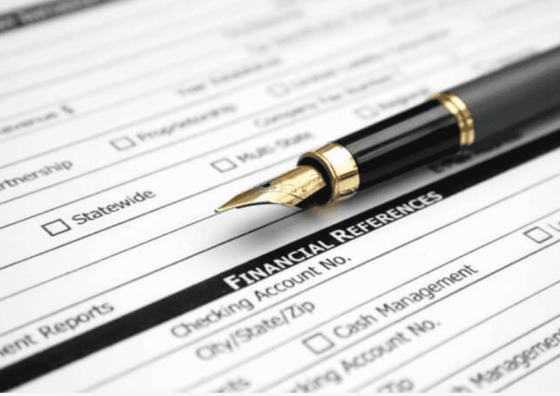So, you want to know how to sell a car with a loan. Don’t worry — we can help!
It’s not uncommon for people to take out loans to finance the purchase of a new car. However, if you find yourself in a situation where you need to sell your car but still have a loan outstanding on it, there are a few things you’ll need to do to ensure a smooth transaction.
All You Need to Know About Selling a Car With a Loan
Sixty-two percent of Americans have a car loan, so it’s only natural to ask if it’s possible to sell a car that has a loan. The answer, fortunately, is yes. In fact, it’s not even that difficult! There are a few things to do first, however.
Collect Information About Your Loan
The first thing you need is information about your loan. This includes the loan balance, interest rate, and monthly payment amount. You will also need to find out if any prepayment penalties are associated with your loan.
If you’re unsure where to find this information, contact your lender. They should be able to give you everything you need.
Get an Estimate of Your Car’s Value
The next step in selling a financed car is to estimate your car’s value. Once you have a general idea of how much your vehicle is worth, you can start negotiating with buyers.
There are a few different ways to get the correct figure. The easiest way is to use an online tool like Kelley Blue Book or NADAguides. These websites will give you an estimate based on your car’s make, model, and year. They will also take into account any damage or wear and tear.
Another way is to have your car appraised by a professional. This can be done at a dealership or independent garage. The downside of this method is that it can be expensive. The upside, however, is that you will get a more accurate estimate of your car’s worth.
Find a Buyer
If you want to sell a car with a loan, you need to find a buyer (obviously). You can do this by advertising online or in your local newspaper. Once you have found an interested party, you will need to negotiate the price and other details (will they use a debit or a credit card to buy your car, etc.).
Be sure to take the equity into account when negotiating the price.
Transfer the Car Title
Once you have found a buyer and they have agreed to pay off the loan, you will need to transfer the car title. You can do this at your local DMV office: Bring the title, bill of sale, and other required documents. After the title has been transferred, you will be free and clear of both your car and your debt.
Dealership vs. Private Party Sales
One of the most important things to decide is whether you want to sell your car to a dealership or a private party. Each has its own pros and cons.
If you’re selling a car with a loan to a dealership, it will typically pay off the remainder of your loan. You’ll just need to provide them with the necessary paperwork and information about the loan. The process is usually pretty straightforward and can be completed quickly.
However, you may not get as much money for your car if you sell it to a dealership. It will likely offer you less than what the car is worth so it can make a profit when they resell it.
On the other hand, selling a car privately with a loan will usually net you more money, but you’ll have to deal with the paperwork yourself. Moreover, you’ll need to pay off the loan yourself before transferring ownership of the vehicle.
This can be done by getting a cashier’s check or money order for the payoff amount and sending it to your lender. Once they receive the payment, they’ll send you a release of lien which you’ll need to give to the buyer.
Positive vs. Negative Equity
Selling a car that is not paid off yet can be done with positive or negative equity.
If you have positive equity in your car, meaning you owe less on the loan than the car is worth, the buyer will pay the total amount to the lender, and you will receive the difference.
For example, if you owe $70,000 on your Lamborgini Jalpa that has a market value of $60,000, you’ll have $10,000 in positive equity.
On the other hand, if you have negative equity in your car (you owe more on the loan than the car is worth), you’ll need to determine and provide the difference between what’s owed and what the buyer is paying to pay off your loan in full.
If, for example, you still owe $12,000 and you get $8,000 from the buyer, you would reimburse the lender for the $4,000 difference. In this case, it might be best to sell your car to a dealership that can offer you a trade-in value for the negative equity.
Extra Tips and Tricks
Now that you know the basics of selling a car that has a loan, let’s look at some extra advice on how to make the process as smooth as possible.
- Get everything in writing: this includes the sale price, payoff amount, and other relevant details. Having a written agreement will protect you if something goes wrong.
- Do your research: make sure you understand the reselling process and know what to expect before moving forward.
- Be prepared: when selling a car on finance, you need to gather all of the necessary paperwork, including the title and registration, and have it ready. You should also have a copy of the loan agreement, so the buyer knows what they’re getting into.
- Be flexible: Selling a car can be tricky, and sometimes you have to be flexible to push the deal through. If you’re dead set on a specific price, you might not be able to find a buyer. Be willing to negotiate and consider multiple offers so you can close the deal.
Conclusion
As you can see, selling a car you owe money on is definitely doable. However, it can be tricky.
To avoid any trouble, collect all of the information on your loan and have it easily accessible. You may also want to be flexible in terms of price. Finally, make sure the buyer is aware of the loan and agrees to pay it off.
Good luck!
FAQs
Is it illegal to sell a car with a title loan?
It is not illegal to sell a car with a title loan. However, you will need to make the buyer aware of the loan and agree with them to pay it off. Otherwise, you may run into legal trouble.
Does selling a financed car hurt your credit?
No, this won’t hurt your credit. In fact, it can help to improve your credit score. This is because you will reduce the amount of debt you owe.
If you’re thinking of paying off your loan early to save money on interest, check whether there are any related fines in your agreement. Keeping a loan open for a few extra months with on-time payments, might help improve your credit score.
How does a car loan work if you sell the car?
When you sell the car, you will need to pay off the loan in full. The process is simple: the new owner will give you the money from the sale, and you will use that money to pay off the outstanding loan balance.
Once the loan is paid off, the title to the car will be transferred to the new owner. If you have positive equity in the vehicle, you may even have some money left over after paying off the loan. However, if you have negative equity, you will need to come up with additional funds to cover the loan balance.
What happens when you finance a car and want to sell it?
If you finance a car and then want to sell it, there are a few things you need to keep in mind. First, you will need to pay off the remainder of your loan. This can be done by sending the payment directly to your lender or asking the buyer to assume ownership of your loan.
Next, you will need to obtain a release of lien from your lender. This document indicates that you have paid off your loan and clears the way for the new owner to take over the title.
Finally, you will need to transfer the title to the new owner. In most states, this can be done by going to your local DMV office with the required paperwork.
Now that you know how to sell a car with a loan, do your research to avoid any surprises down the road.






